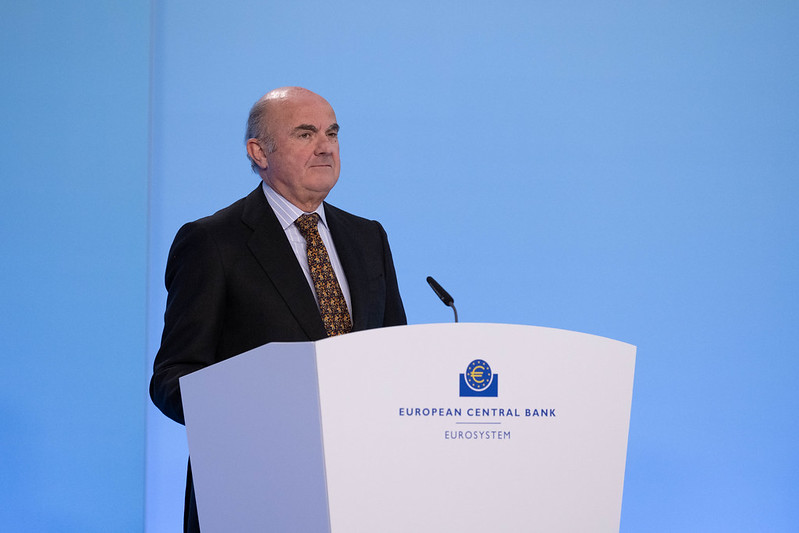How sensitive will the ECB be to euro strength?
The euro has risen by 14% against the US dollar so far this year. That’s a big rise and, at a time when the concerns of the ECB seem to be shifting from inflation to disinflation it could be, or could become problematic.

ECB Vice President de Guindos hinted that euro strength could become a problem in comments yesterday when he argued that a rise to 1.20 or above against the US dollar would make the ECB’s position more “complicated”.
Given that we see a rise to 1.30 over the coming year, we fully expect the ECB’s decision-making progress to become more difficult and it is one reason why the Bank could take the deposit rate down to 1.5% which is a bit more dovish than other analysts and current market pricing. But how sensitive will the ECB be to euro strength? Could we see quick knee-jerk rate cuts if the euro continues to rise? Might ECB members start to bemoan the euro’s strength as a way to limit the appreciation?
While Steven Barrow, Head of Standard Bank G10 Strategy, suspects that the answer to these two questions is ‘no’ in both cases, he can’t ignore the fact that significant euro strength could throw a big spanner in the ECB’s works. While a quick knee-jerk rate cut in response to euro strength is unlikely in his view, the persistence of a higher euro as well as its impact on lowering inflation, should help push the ECB to ease over the longer-term as it concludes that the euro’s rise against the US dollar is more of a longer-term structural appreciation than just some sort of flash-in-the-pan.
The ECB has just released its Strategy Review where one of the main take-aways is that the bank wants to devote more time to analysing alternative scenarios, and clearly substantial euro strength could be one such scenario. The problem is that currencies are fickle and euro strength today could easily fizzle out in the second half of the year (although that’s not our base case). Hence, the ECB has to be careful not to rush to assume that an alternative scenario, which is that of substantial euro strength, needs to replace the baseline forecast.
For doing so could lead to a policy mistake if rates are cut prematurely. This is why Steven Barrow feels that the ECB will not knee-jerk rates lower in the short-term should the euro keep on rising, but will shift towards something like this alternative scenario over the long haul – and cut rates further - once it seems reasonable to conclude that a much stronger euro is here to stay.
On the second issue, which relates to the possibility of the ECB bemoaning euro strength and surreptitiously, or not, trying to ‘talk’ the euro down, Steven Barrow said there would be reasons for scepticism. First and foremost, current policy is dictated by the President of the Eurogroup, Paschal Donohoe, not the ECB, which is one reason why the bank is usually very coy when it comes to talking about the euro. A second point is that, while the euro has risen sharply against the US dollar, it has not reached anything like the sorts of levels that might be deemed as overvalued. And a third reason is that the ECB, or at least President Lagarde, can’t promote the euro as an alternative to the US dollar in terms of its international financial role and, at the same time bemoan the fact that this is lifting the value of the euro. The ECB must surely expect that eating into the US dollar’s dominant global role is likely to come at the cost of a stronger currency.
We’d also make one final point, which is that de Guindos and others may talk in terms of euro/US dollar, but there are many other currencies that the ECB has to take into account. One of these is the renminbi, where the euro has also risen a hefty 12% so far this year. Add in another 40 currencies to the dollar and renminbi and the resulting broad euro trade-weighted index has risen to its highest ever levels in recent months. On this basis, if the ECB was truly worried about excessive euro strength and its implication for disinflation, it might have justified some of the rate cuts to date on currency strength, but it has not.








